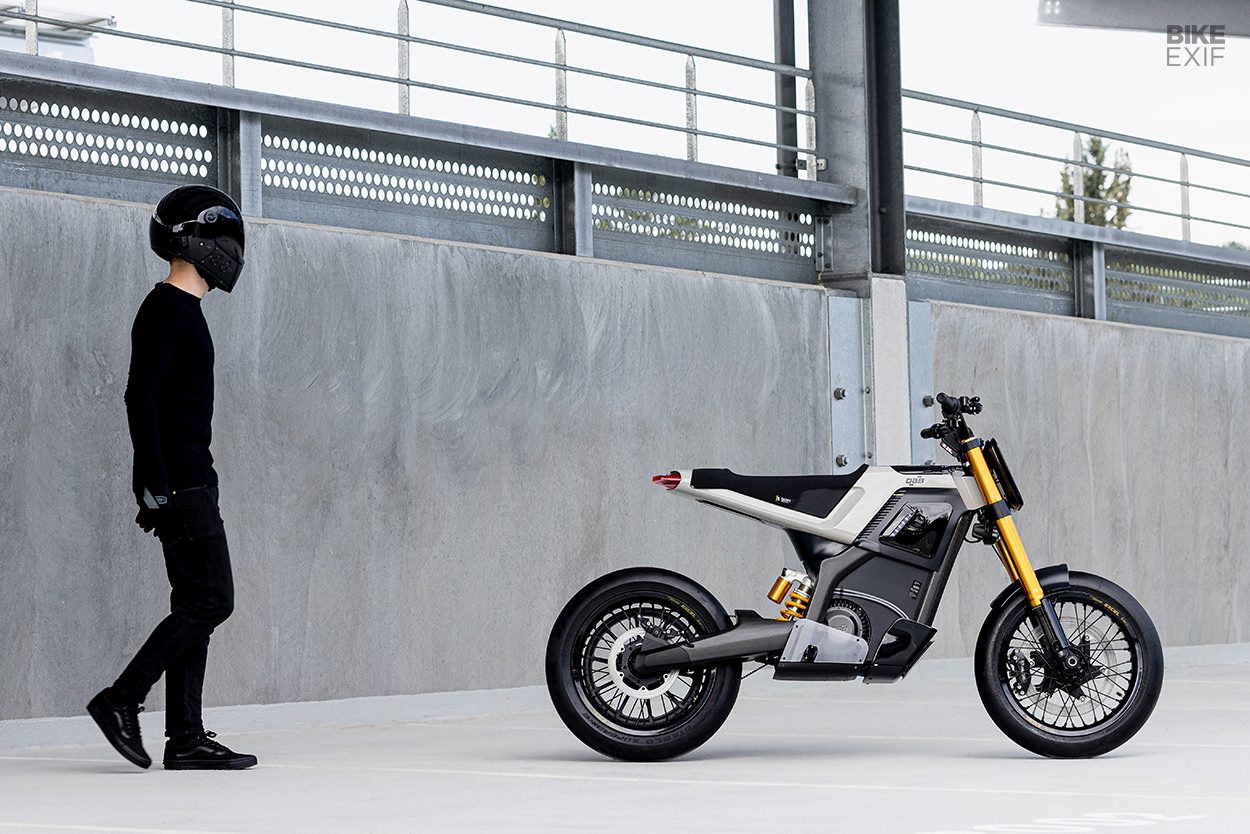
There’s a marvelous history of smaller motorcycle manufacturers in France, and the tradition shows no sign of abating. Mash Motors is probably the best known outside La République, but the most interesting company right now is DAB Motors.
DAB is based in the beautiful city of Bayonne, in the Basque region of southwest France. We’ve already showcased their sharp-looking LM-S scrambler, but this new electric concept is the most significant step forward yet for founder Simon Dabadie and his colleagues.
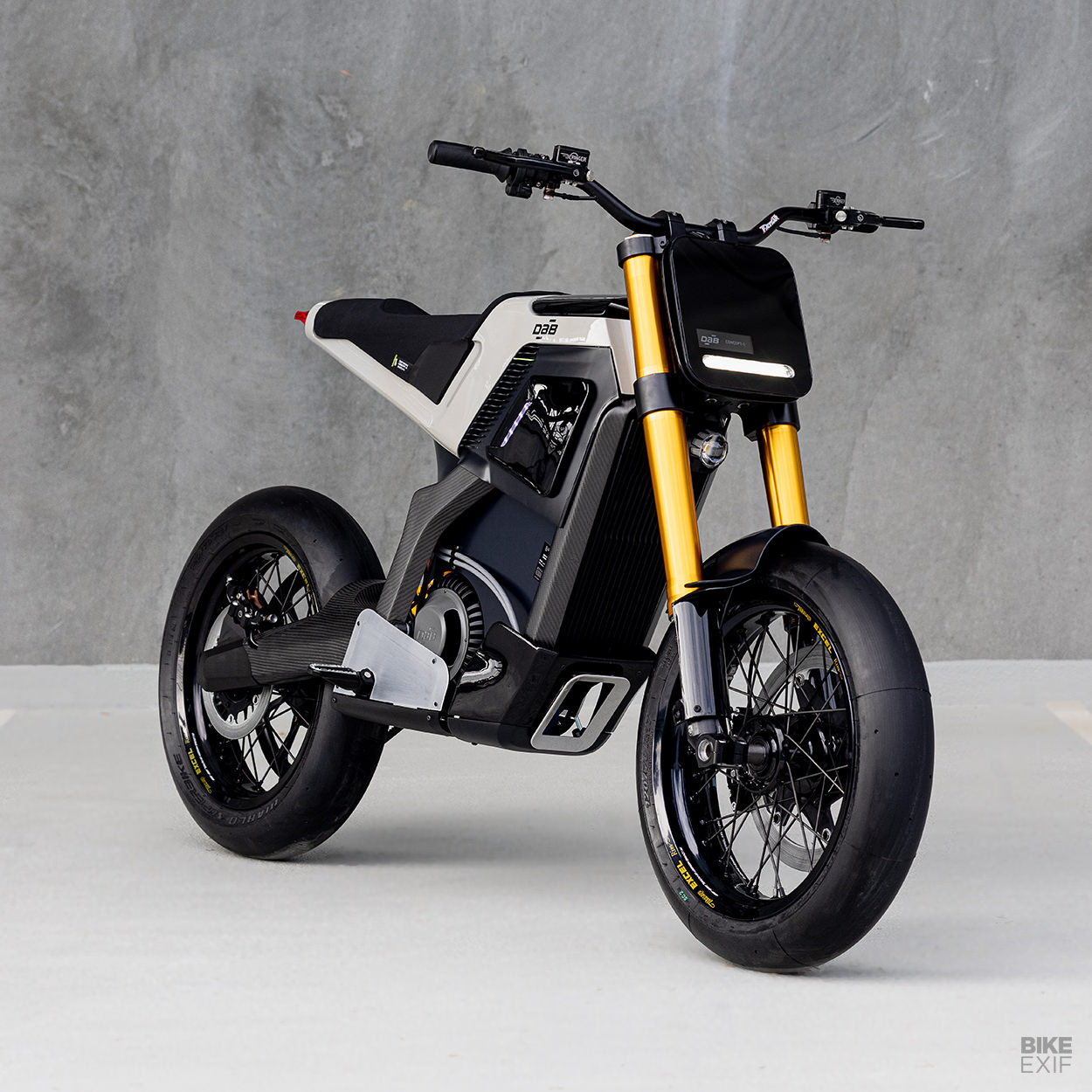
Despite the name, the Concept-E is a fully functioning, rideable bike, developed from scratch. It looks as good as anything from a major factory, and it’s positioned as a lightweight urban commuter. Range is 110 km (68 miles) and top speed is 105 kph (65 mph).
It’s equipped with a 10kW motor and a 51V Li-ion battery, making it roughly the equivalent to a 125cc commuter bike. The motor output sits between the 8kW unit used in Husqvarna’s recent E-Pilen concept and the beefier 14.5kW of the Sondors Metacycle; the instant torque will give it an advantage over conventional vehicles when the traffic lights turn green.
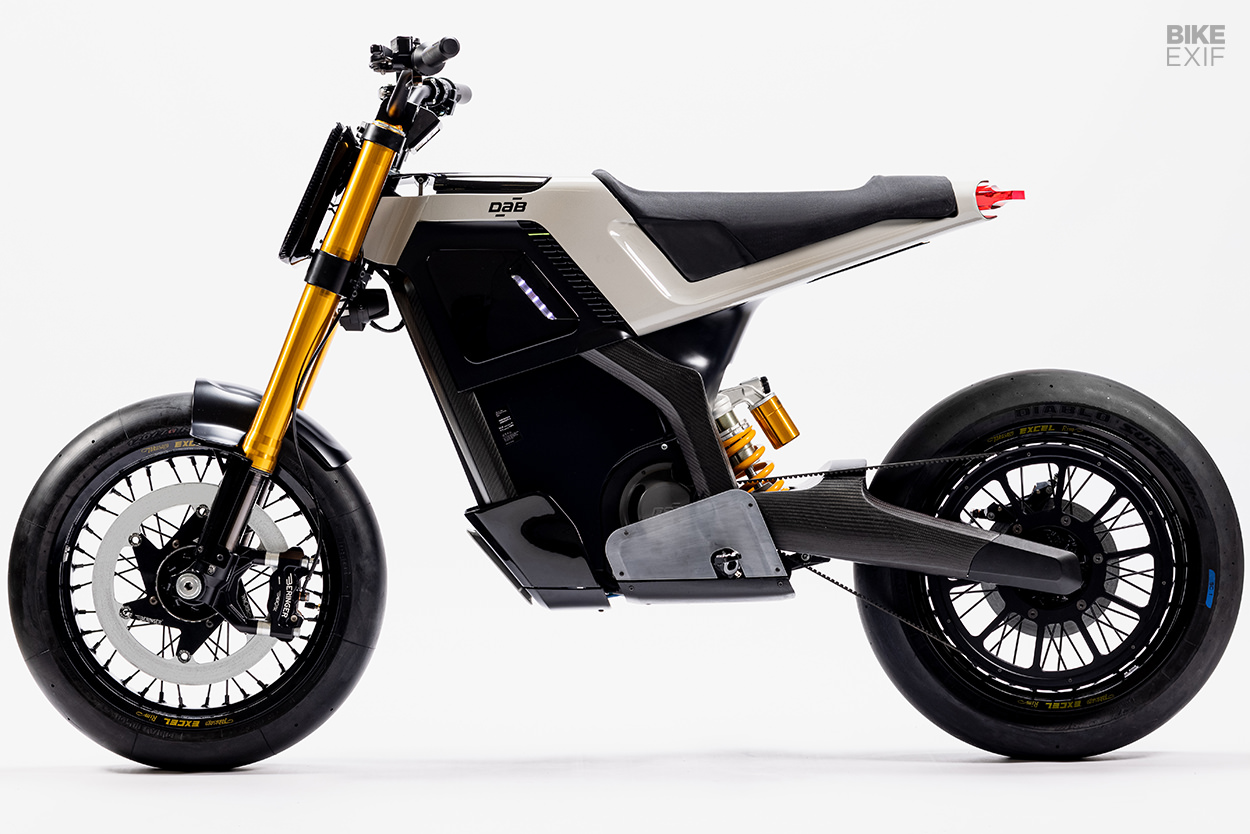
The Concept-E is no bargain-basement knock-off. DAB uses top-shelf components from brands like Öhlins, Beringer, Pirelli, Excel and Rizoma—the gear usually reserved for premium editions of mainstream bikes or high-end customs.
But since this is s a concept, there are no legal niceties such as turn signals, mirrors or a licence plate holder. “We wanted full freedom in this exercise,” says Simon. “But if you look at our production LM-S, integrating those components is not a problem.”
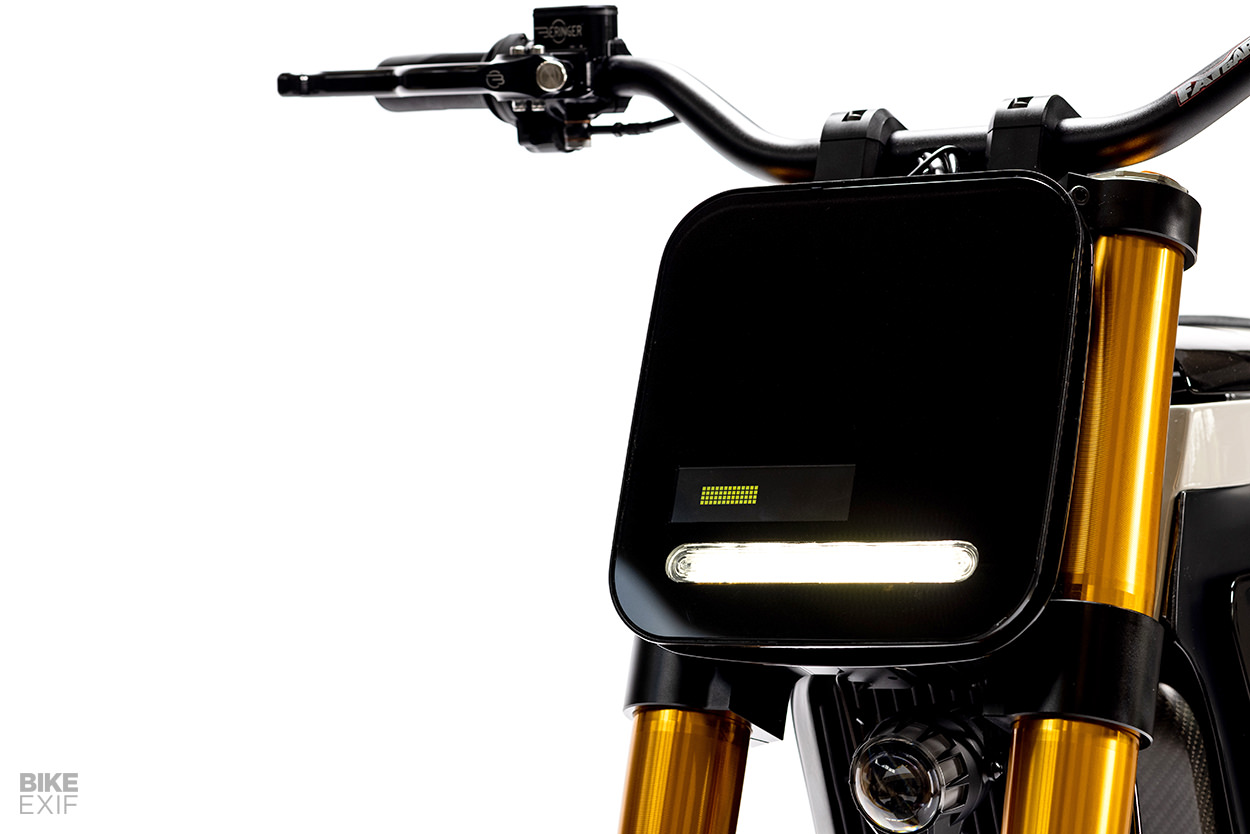
Simon’s team developed the concept in-house, but with help from design partner Outercraft. It’s a similar relationship to that between Husqvarna and the Austrian agency Kiska.
“Concept-E is our signature design for future electric models, so you can expect more like this in the future,” says Simon. “Most of the bike is made of carbon fiber, including the frame, swingarm and bodywork. We sculpted the bike in foam first, adjusted it until we got it right, and then designed and engineered the components using CAD software and 3D printing.”
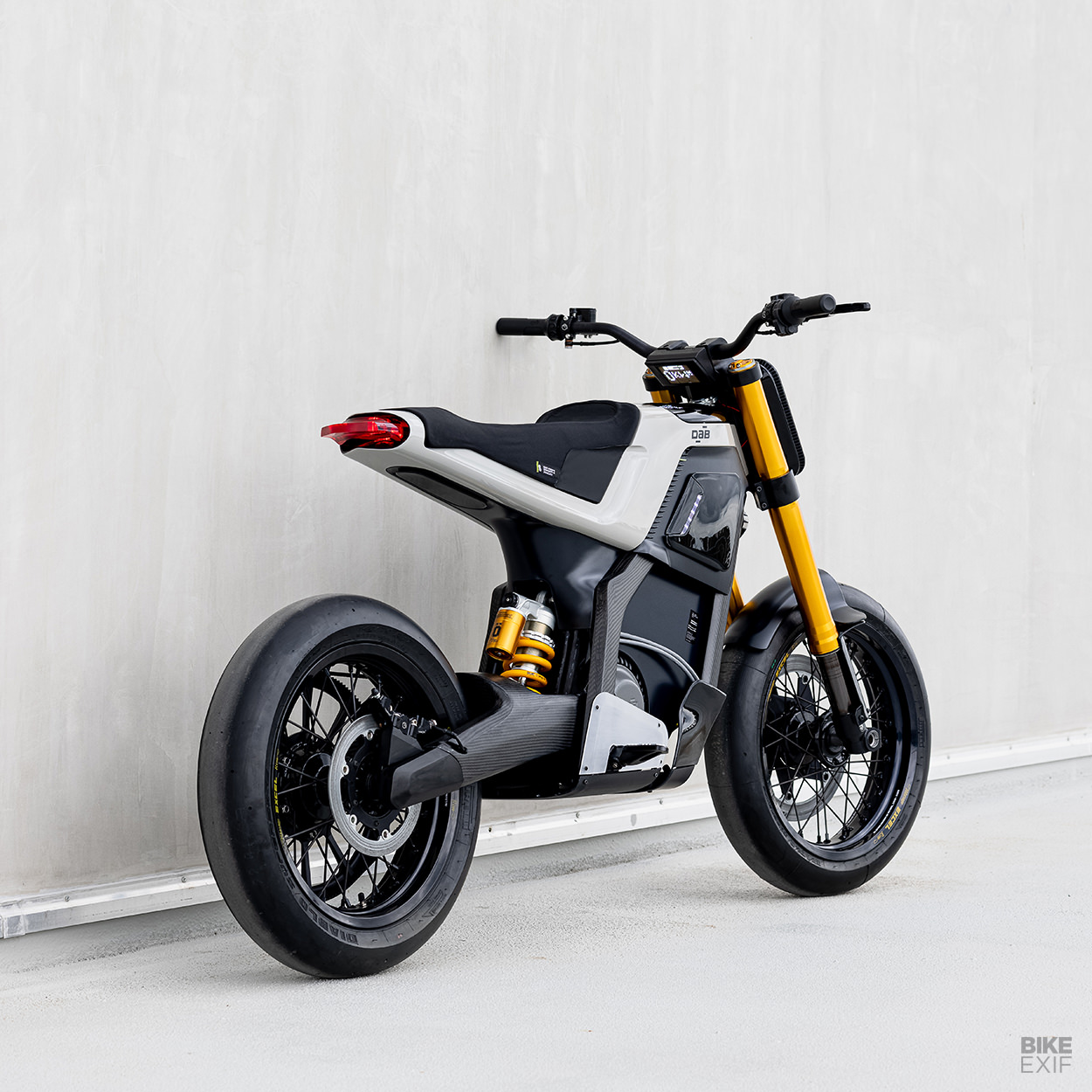
The 3D prints produced the molds, and the parts were manufactured. The paint combines a beautiful ‘racetrack grey’ with matte and glossy blacks: a look that’s ultra-modern without being faddish.
DAB have put a lot of effort into keeping the aesthetics clean, concealing fasteners and cables and employing unusual materials like woven nylon Ripstop fabric for the seat, and the translucent thermoplastic PMMA for the engine guards. CNC’d aluminum is used for critic parts like the triple trees, pulleys and rear brake holder, often black anodized.
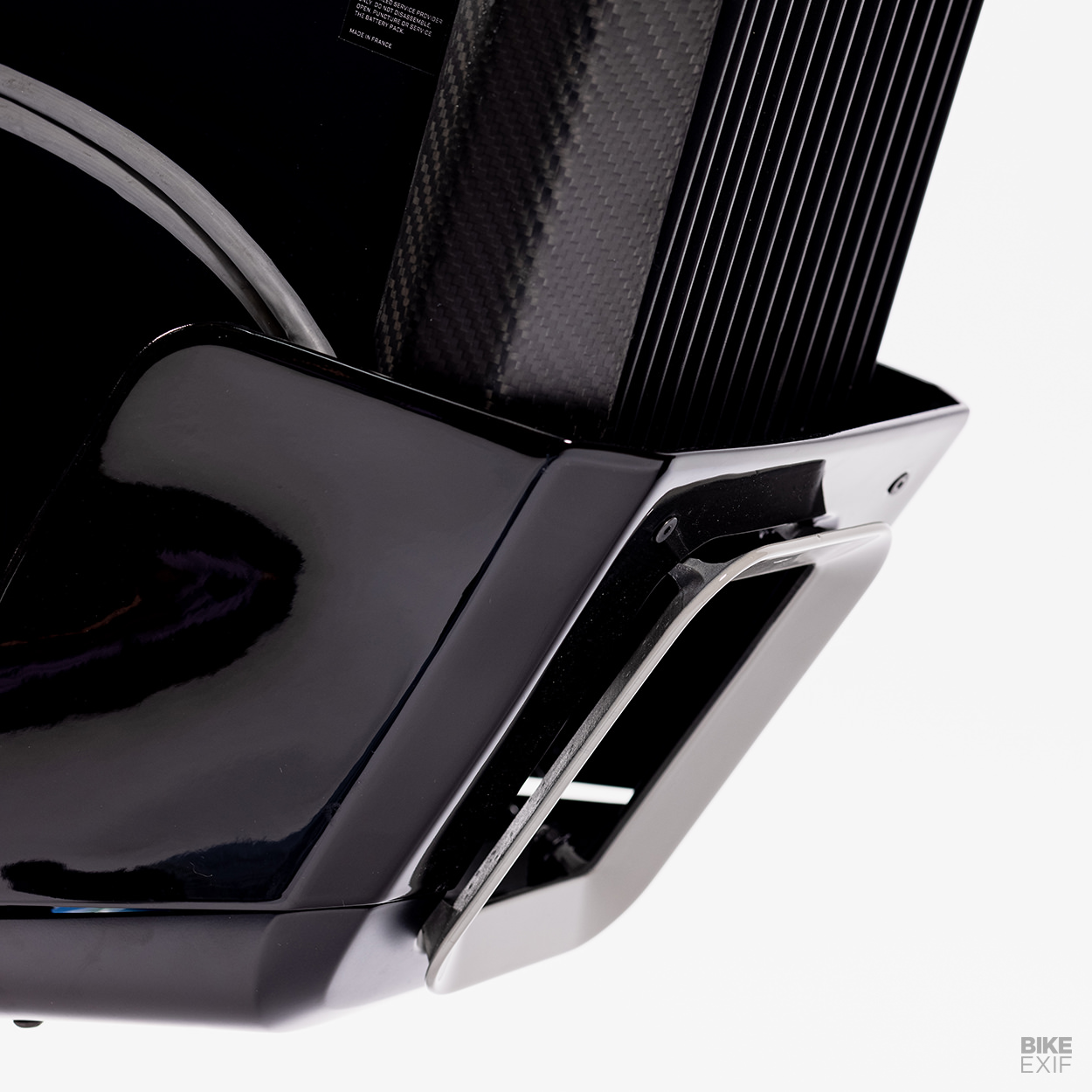
As every good chef knows, ‘You eat with your eyes first,’ and Simon knows that the same principle applies to people buying vehicles. “The distinctive point of the Concept-E, compared to its peers, is the aesthetic approach,” he tells us.
“Instead of a mechanical, aggressive style that no longer makes sense with electric technology, we worked on defining a new standard fuelled by electronics and automotive inspirations. The bodywork is shaped with minimal lines, keeping a subtle balance between speed and elegance.”
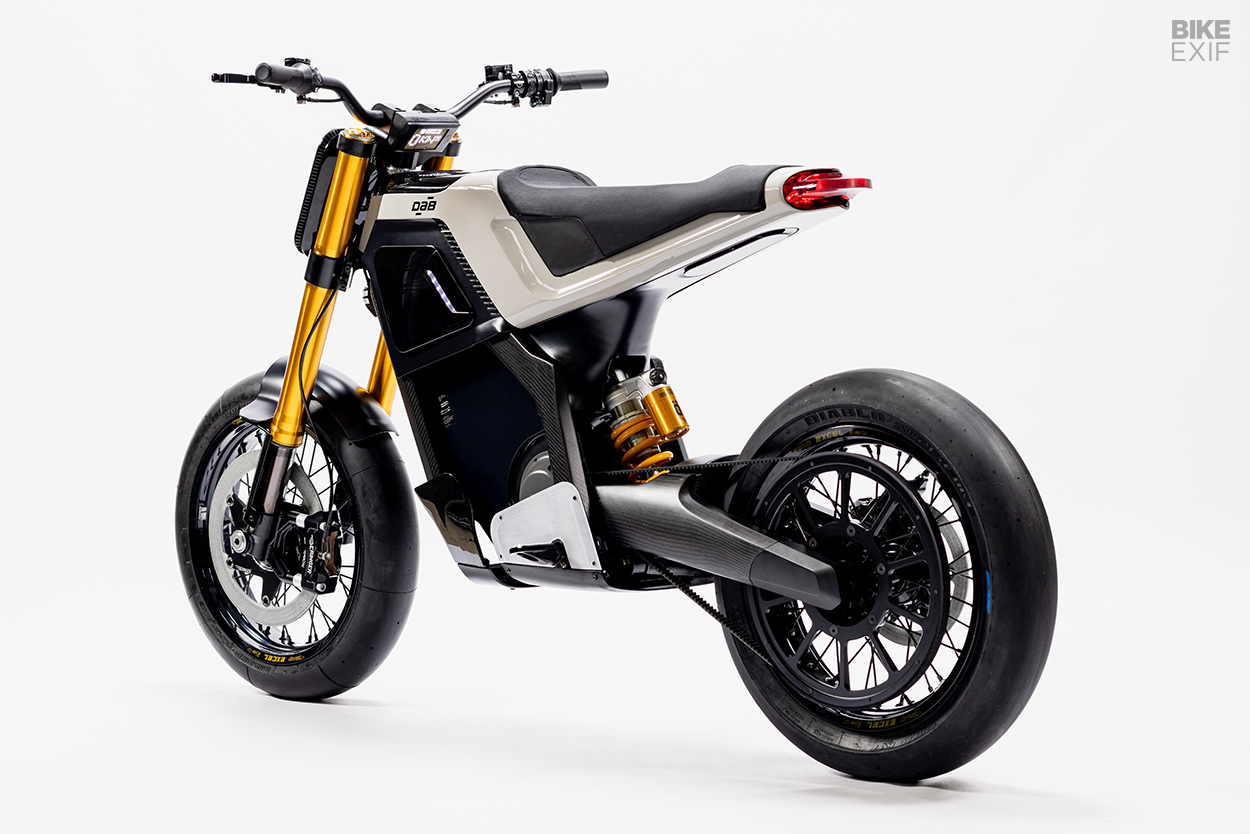
He flags the styling of the Concept-E as a new design language for the DAB brand, and it carries through to the little details—like the ‘floating’ effect on the front fender, and the precisely engineered ventilation grilles. All cables are hidden inside the Renthal Fatbar, which is outfitted with custom-designed grips and Beringer controls.
The translucent red rear lighting was inspired by high-end automotive design, and looks worthy of a supercar.
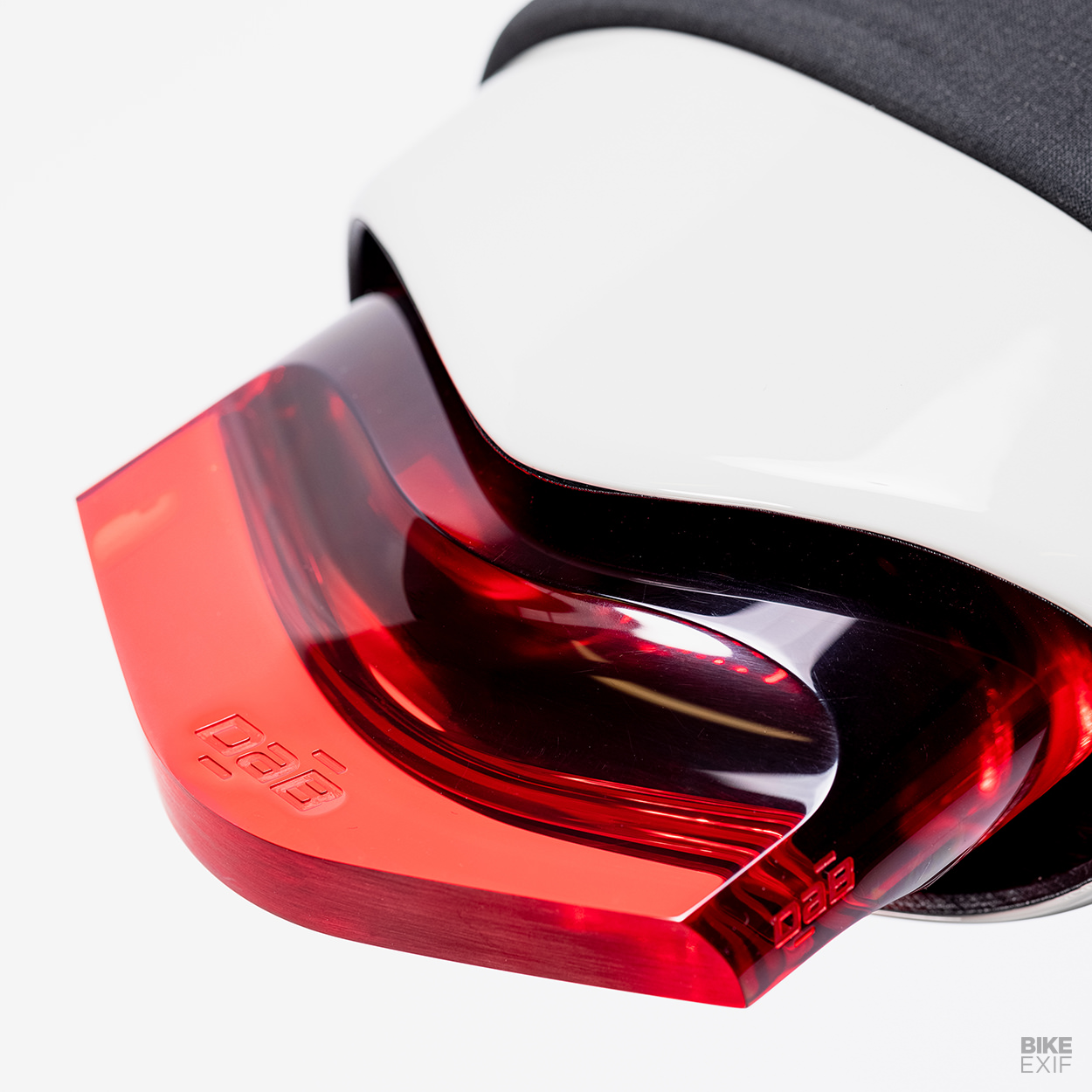
The other main focus is on the rider experience. “The riding position is derived from sporty supermoto, or motocross,” says Simon. “This gives the bike more ‘reactivity’ and security in high-density traffic, as well as increasing driving thrill.”
Being light and narrow, the Concept-E is perfect for weaving in and out of traffic and parking in small areas. The ‘gas tank’ is actually a storage space, and smartphones can be wirelessly charged inside.
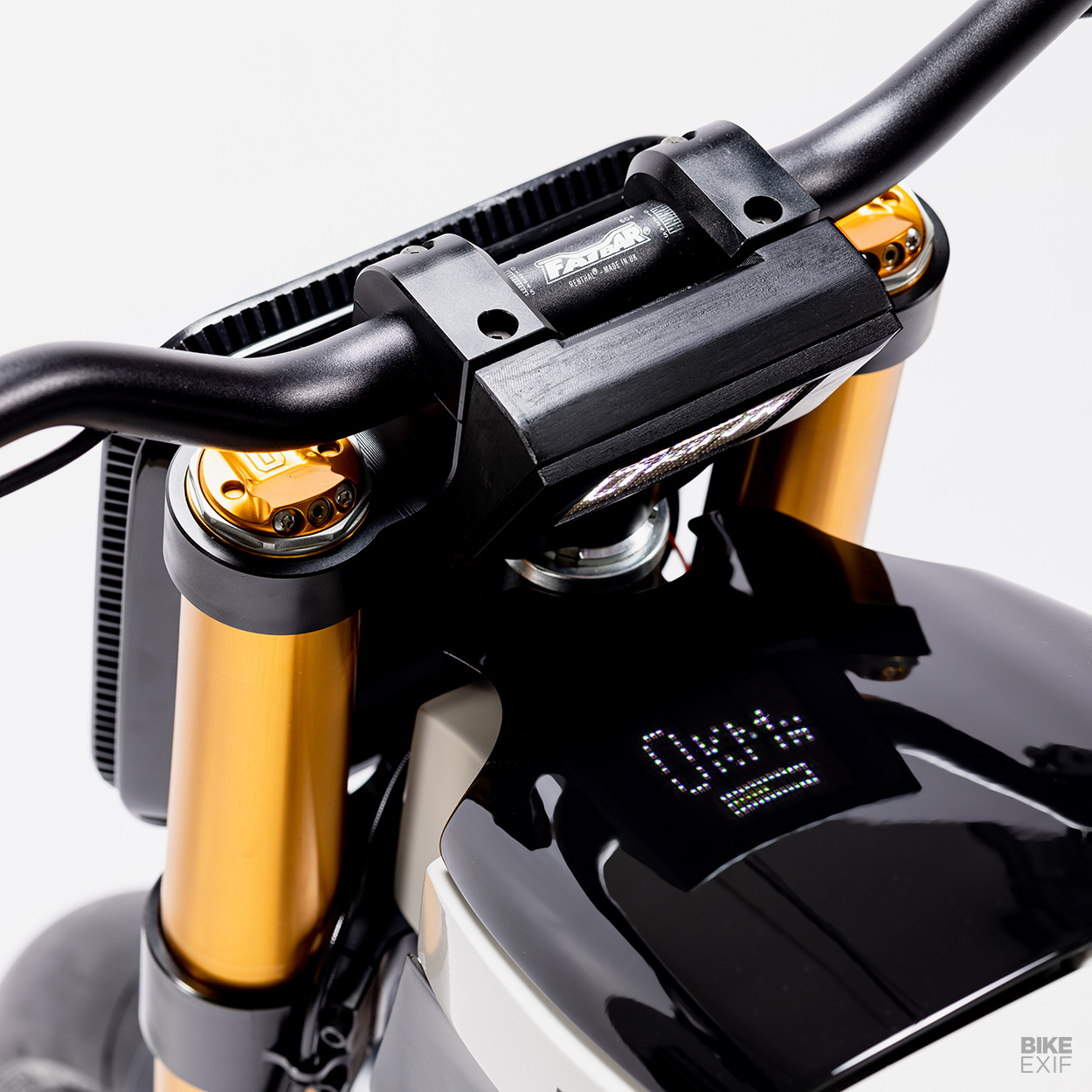
The bike starts via a phone app rather than a key, and there’s a simple speedo on top of the tank, which also shows battery charge, maintenance and geolocation information. The LEDs are bright enough to display clearly even in strong sunlight.
It all sounds too good to be true, but there’s a good chance this intriguing machine will go into production. DAB has just been refueled by a new funding round, a retailer network is being developed, and the plan is to cover all bases by releasing new machines—both petrol and electric powered.
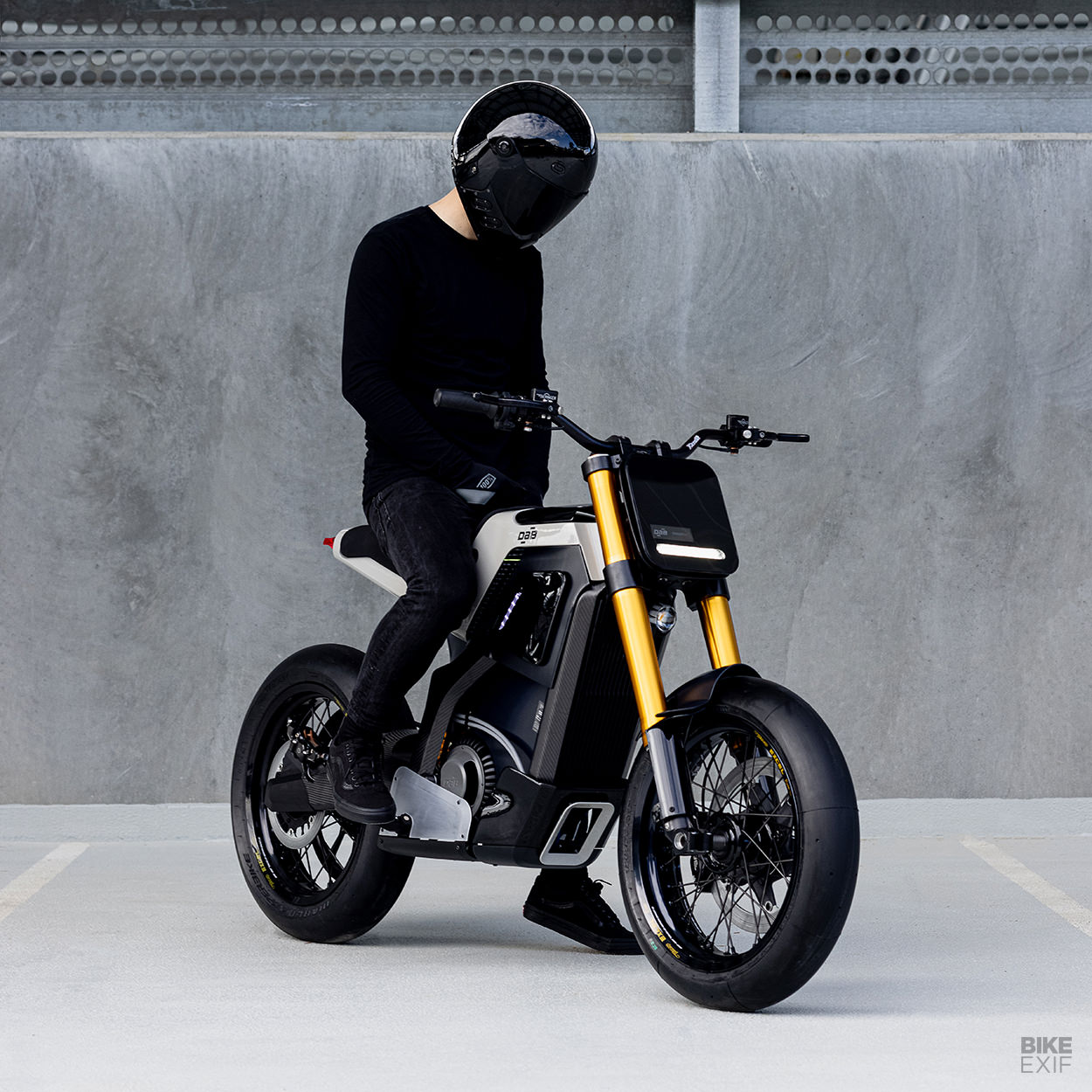
Simon is coy when pressed about a launch date for a production electric bike. “It might mean that DAB Motors is ready to enter the EV market in the near future,” he says enigmatically. “But when is ‘near’?”
The sooner the better, we say.